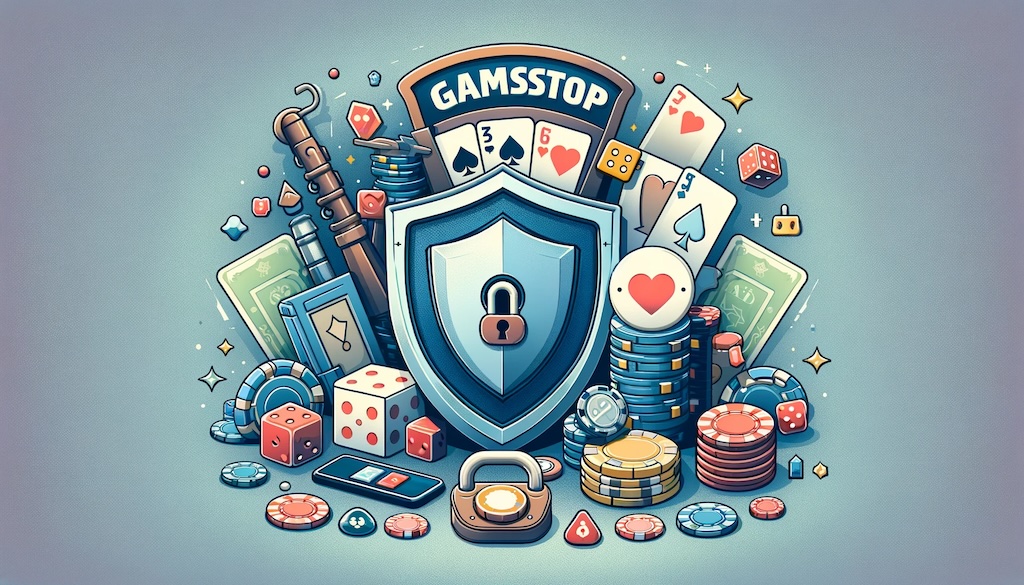The emergence of crypto casinos marks a significant transformation within the online gambling sector, driven primarily by the integration of blockchain technology. This innovative use of blockchain not only enhances the functionality and appeal of online gambling platforms but also addresses some of the long-standing issues faced by traditional online casinos.
Table of Contents
Significance of Blockchain Technology
Blockchain technology is pivotal in this transformation, offering a decentralized platform that increases transparency and fairness in gaming operations. Unlike traditional systems, where players must trust the casino to fairly report game outcomes, blockchain technology enables something known as “provably fair” gaming. This system allows players to verify the randomness and fairness of all game results, fostering a level of trust and security previously unattainable.
Furthermore, blockchain’s inherent characteristics—such as immutability and transparency—ensure that all transactions are recorded securely, reducing the risk of fraud and enhancing player confidence. Players can now engage in gambling activities without providing excessive personal information, thereby protecting their privacy and reducing potential data breaches.
Advantages of Crypto Casinos
Crypto casinos bring several notable advantages to the gambling industry, transforming the way players interact with online gambling platforms.
Faster Transactions and Lower Fees
One of the most significant benefits of crypto casinos is the speed of transactions. Unlike traditional online casinos that may take days to process withdrawals, crypto casinos offer near-instantaneous transactions. This efficiency is due to the decentralized nature of blockchain technology, which eliminates the need for intermediaries like banks. Consequently, this also reduces the transaction fees significantly, allowing players to enjoy more of their winnings and providing a stronger incentive to play more frequently.
Enhanced Security and Anonymity
The security features of blockchain technology are a major draw for players and operators alike. Each transaction is recorded on a blockchain, offering a high level of transparency and security that is difficult to compromise. This setup reduces the risk of fraud and data breaches, which are common concerns in traditional online gambling platforms. Furthermore, the ability to transact anonymously appeals to players concerned about privacy, as it minimizes the need to share sensitive personal information.
Fairness and Trust
Blockchain technology enables crypto casinos to utilize provably fair algorithms, which allow players to verify the fairness of each game in real-time. This transparency is revolutionary in the gambling industry, where trust in the fairness of games has historically been a concern. By allowing players to check the randomness and fairness of game outcomes, crypto casinos set a new standard for trust and integrity in online gambling.
Global Accessibility
The decentralized nature of blockchain allows crypto casinos to operate without the geographical constraints that traditional casinos often face. Players from around the world can access these platforms as long as they have an internet connection and comply with local regulations. This global accessibility helps to expand the customer base and can lead to more diverse gaming communities.
These advantages demonstrate why crypto casinos are becoming increasingly popular and are considered the future of online gambling, offering a more inclusive, secure, and efficient gaming experience.
Technological Innovations in Crypto Casinos
The integration of advanced technologies such as Artificial Intelligence (AI) and blockchain within crypto casinos is reshaping the gambling experience, making it more secure, efficient, and user-centric.
Integration of AI and Machine Learning
AI and machine learning are increasingly playing a pivotal role in enhancing customer support and operational efficiency within crypto casinos. AI-powered chatbots provide instant, context-aware customer support, improving user experience and engagement. Furthermore, machine learning algorithms are employed to detect early signs of problem gambling, thereby supporting the implementation of responsible gaming measures. These technologies help in analyzing player behavior, enabling casinos to offer personalized gaming experiences and promotions tailored to individual preferences.
Decentralized Casinos
Decentralized casinos represent a significant shift in how gambling operations are conducted. By leveraging blockchain technology, these platforms operate without a central authority, which enhances transparency and security for all users. Players in decentralized casinos can expect fairer gameplay and have the ability to verify game outcomes independently, thanks to the immutable nature of blockchain. Moreover, community governance models often accompany decentralized casinos, allowing players a say in how the platforms are run, which can increase trust and user satisfaction.
These technological advancements not only improve the security and integrity of gaming operations but also offer a more inclusive and engaging gambling environment. As these technologies continue to evolve, they promise to further transform the landscape of online gambling, making crypto casinos even more appealing to a global audience.
Regulatory Challenges and Considerations
The regulatory landscape for crypto casinos is both complex and dynamic, reflecting a diverse array of global perspectives and legal frameworks.
- Varied Legal Landscape: Around the world, the legality and regulation of crypto casinos vary significantly. In some jurisdictions like Malta and Curaçao, the regulatory environment is relatively open, allowing crypto casinos to operate with more freedom. These regions offer robust licensing options, fostering a thriving gambling ecosystem. In contrast, countries like the United States and China present a much more restrictive environment. The U.S. sees a state-by-state variance in legal attitudes towards online gambling, including crypto casinos, whereas China maintains stringent controls over all forms of online gambling activities.
- Regulatory Evolution: As blockchain technology continues to permeate the gambling industry, regulatory bodies are increasingly faced with the need to adapt existing frameworks to accommodate new technologies. This adaptation is crucial not only for addressing the unique characteristics of blockchain and cryptocurrencies but also for ensuring player safety and fair play. There is a growing recognition that the laws governing online gambling must evolve to reflect the capabilities and risks associated with crypto casinos. This includes tackling issues like the anonymity provided by crypto transactions, which poses challenges in anti-money laundering (AML) and combating the financing of terrorism (CFT).
These regulatory challenges highlight the need for ongoing dialogue between crypto casinos, regulators, and other stakeholders to ensure that the benefits of blockchain and cryptocurrencies can be harnessed safely and responsibly in the gambling industry. The future of crypto casinos will likely depend on how these regulatory challenges are navigated, balancing innovation with consumer protection and legal compliance.
Market Dynamics and Player Behavior
Adoption by Casinos and Players
The adoption of cryptocurrencies in the gambling industry has significantly expanded the market. Online casinos that accept cryptocurrencies can cater to a broader audience, attracting a segment of players who are already familiar and comfortable with digital currencies. This adoption is not just a trend but a strategic move that enables casinos to leverage the global nature of cryptocurrencies, thus bypassing traditional financial systems and attracting tech-savvy gamblers.
Impact of Cryptocurrency Volatility
The volatile nature of cryptocurrencies presents a unique challenge in the gambling sector. The value of cryptocurrencies such as Bitcoin and Ethereum can dramatically fluctuate, affecting both the casinos’ financial strategies and the players’ betting stakes. This volatility can influence the players’ decisions on when to withdraw their winnings, as the value of these winnings could significantly change within a short period. Such financial unpredictability requires both players and operators to be more cautious and strategic in their financial dealings.
This section of your article would highlight how crypto casinos are becoming integrated into the broader gambling market and how their unique characteristics affect player behavior and market dynamics.
Challenges to Wider Adoption of Crypto Casinos
Technological Barriers
One of the significant hurdles to the widespread adoption of crypto casinos is the level of technological knowledge required both from users and operators. Cryptocurrency transactions, for example, involve managing digital wallets, understanding blockchain technology, and ensuring security measures like private key management. These requirements can be daunting for individuals who are less tech-savvy, potentially limiting their participation in crypto gambling. Such technical complexities may deter new players who are unfamiliar with cryptocurrency mechanics.
Security Concerns
Despite the inherent security advantages of blockchain technology, such as decentralized transactions and tamper-proof records, the risk of hacking and other security breaches persists. Online casinos must invest in robust cybersecurity measures to protect both their operations and their users’ data. This includes the use of secure wallets, employing advanced encryption techniques, and continuously updating their systems to guard against new threats. The anonymity provided by cryptocurrencies also presents a challenge in monitoring gambling behaviors, which could complicate efforts to enforce responsible gambling practices.
Together, these challenges require ongoing attention and innovation from both technology providers and regulatory bodies to ensure a safe, secure, and accessible environment for all users in the crypto casino space.
Future Prospects of Crypto Casinos
The future of crypto casinos is poised to be shaped significantly by emerging technologies that integrate more deeply with blockchain capabilities. Here are key areas of innovation:
- Virtual Reality (VR) and Augmented Reality (AR): The integration of VR and AR technologies in crypto casinos is expected to revolutionize the user experience by offering immersive, real-time gaming environments. This can make online platforms feel as engaging as physical casinos, enhancing the attraction for users seeking a more engaging gambling experience.
- Expansion of Live Dealer and eSports Betting: There is a growing trend towards incorporating live dealer options and eSports betting within crypto casinos. Live dealer games provide a hybrid experience that combines the convenience of online play with the authentic atmosphere of a physical casino. Meanwhile, eSports betting taps into the burgeoning market of competitive gaming, providing new avenues for betting that attract younger demographics and tech-savvy individuals.
- Incorporation of NFTs: Non-fungible tokens (NFTs) are beginning to find a role in the crypto gambling industry, potentially allowing players to own unique digital assets that can be used within games or traded on external platforms. These could represent anything from special game items to unique player rewards, adding a layer of collectibility and investment potential to the gambling experience.
- AI-Driven Innovations: Advanced AI technologies are expected to continue infiltrating the crypto casino sector, offering enhancements in fraud detection, customer service via intelligent chatbots, and personalized gaming experiences. AI can analyze player data to offer customized bonuses and games, improving engagement and retention.
These innovations not only aim to enhance the gaming experience but also strive to address issues such as security, trust, and user engagement, ensuring the longevity and sustainability of crypto casinos in the gambling industry.


 Español
Español Português de Brasil
Português de Brasil Hrvatski
Hrvatski Deutsch
Deutsch Italiano
Italiano Français
Français Čeština
Čeština Polski
Polski Lietuviškai
Lietuviškai Svenska
Svenska Română
Română Norsk Nynorsk
Norsk Nynorsk Русский
Русский Українська
Українська







